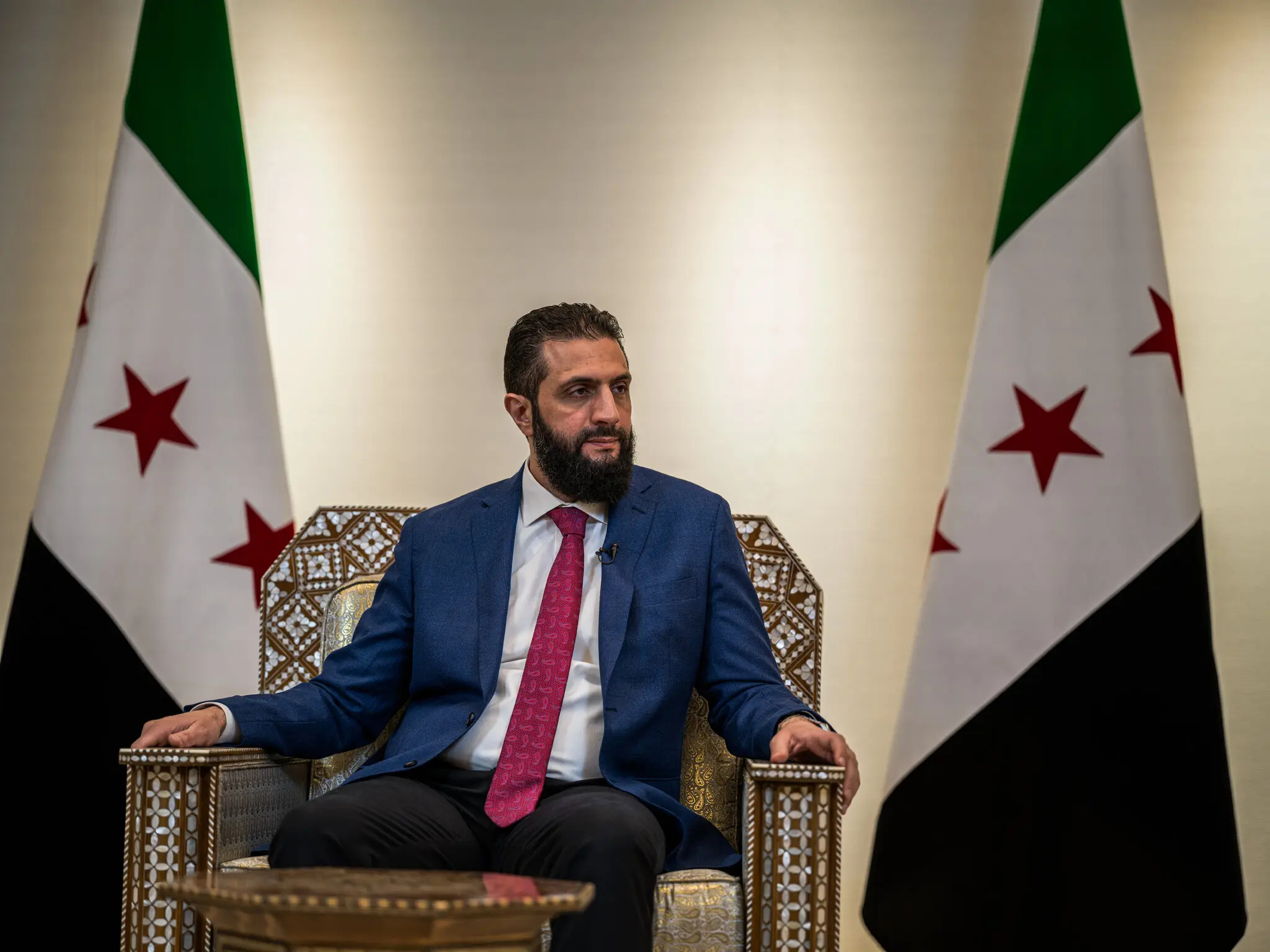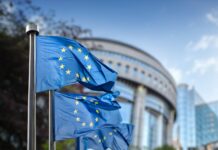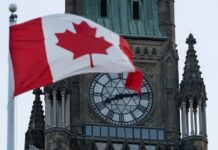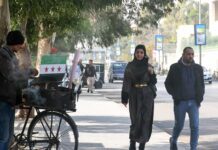
In his first major interview since assuming the presidency, Syrian President Ahmad al-Sharaa appealed for the United States and its allies to lift long-standing economic sanctions, while signaling a possible realignment of military ties with Russia and Turkey.
Syria Struggles Under Sanctions
Speaking to The New York Times (NYT) at the presidential palace in Damascus, Sharaa described his country’s urgent need for foreign aid, military support and political recognition following the collapse of Bashar al-Assad’s decades-long rule. “The sanctions were implemented as a response to crimes committed by the previous regime against the people,” he said. “Now that regime is gone.”
It is time the sanctions end he posits, yet despite temporary carve-outs for humanitarian aid, US and EU sanctions continue to cripple Syria’s economy. He said their removal is key to rebuilding public institutions and paying government workers. In recent weeks, he toured Gulf nations to secure funding, with Qatar offering limited financial support—contingent on clarity from Washington.
Balancing Act Between East and West
Since taking power, Sharaa has sought new terms with Moscow and Ankara, both of which maintain troops in Syria. While Assad-era agreements have been voided, Syria maintains military and political partnerships that respect its sovereignty. “Turkey has a military presence in Syria and Russia also has a military presence,” he said. “We’re developing new agreements.”
He hinted at potential arms deals with Russia, noting the country’s long-standing role as Syria’s primary weapons supplier. “Russia is a permanent member of the Security Council. Syria’s weapons are entirely Russian,” he said. “We must take these Syrian interests into consideration.” Though the Kremlin refused Damascus’ request to extradite Assad, Sharaa emphasized continued cooperation with Moscow, citing decades of arms and energy partnerships.
Fragile Peace and a Fear of “Foreigners”
US officials issued a list of demands on Syria, including the dismantling of chemical stockpiles and removal of “foreign fighters” from government roles. Sharaa floated the idea of granting citizenship to long-residing foreign combatants who “stuck beside the revolution,” a suggestion likely to deepen Western unease over Syria’s direction.
However, Sharaa was very forward in observing that insuring Syria’s success and security was advantageous for everyone. “Any chaos in Syria will damage not just neighboring countries but the whole world,” he said. “We told all the parties that this military presence has to be in line with Syria’s legal framework,” he said, adding that the new Syria would not allow its territory to be used as a threat to other nations.
Syria’s government remains under pressure to consolidate control over a fractured coalition. In March, a chaos in the coastal region highlighted lingering instability, with various factions attacking Alawite communities loyal to the former regime. The Syrian Network for Human Rights (SNHR), documented 1,562 deaths over the period of unrest.
While Sharaa vowed accountability and peace, and established an investigative committee, the violence exposed the fragility of the transitional national army and the limits of national control in a country full of weapons and assorted military factions. “It will take some time,” he said of building a capable military. “This in itself poses a huge challenge.”








